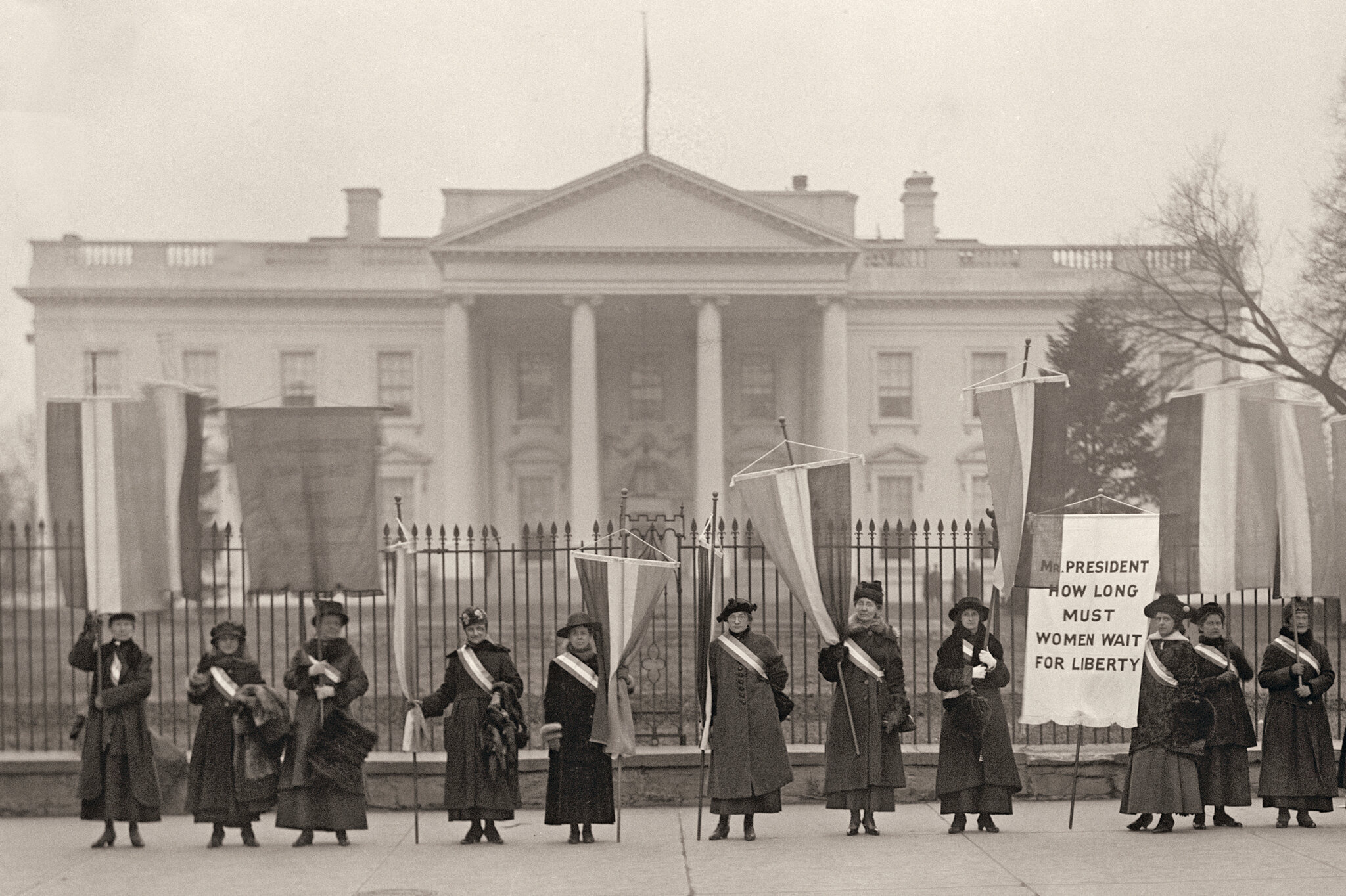19th
AMENDMENT XIX
The right of citizens of the United States to vote shall not be denied or abridged by the United States or by any State on account of sex.
Congress shall have power to enforce this article by appropriate legislation.
Women picketing in front of the White House in 1917. SOURCE: Library of Congress
100 years ago this week, the United States ratified the 19th Amendment to its Constitution, granting white women the right to vote. CAIC, the art song organization I co-founded 10 years ago, is preparing to celebrate this centennial anniversary through our annual Collaborative Works Festival and I’ve been doing a bit of a deep dive into the history surrounding this critical movement. I’m passionate about history, but rather than studying mythical ‘golden ages past’, history is most fascinating when it is telling the story of ‘now’. As we celebrate a supposed century of women’s suffrage in the United States, it’s painful to understand that the right to vote remains under constant assault.
In a time in which a pandemic that has claimed more than 170,000 lives makes it unsafe to vote in person, mail-sorting machines being decommissioned and mailboxes being removed by the hundreds are just the tip of the iceberg in the latest wave of voter suppression being unleashed by the government. These reports are particularly disturbing in states like Oregon, where there is a universal vote-by-mail system that is reliant on the postal service to ensure that everyone’s votes are counted. As sensational as these kinds of tactics are, they are just the latest in a dark history of voter suppression including gerrymandering, purging voters from the rolls, reducing polling sites (most recently from 3700 to fewer than 200 in Kentucky this year), charging poll taxes, demanding literacy tests, and passing voter ID laws, just to name a few.
Chinese-American suffragist Mabel Ping-hua Lee, who protested for women’s right to vote even though she would not be able to vote herself, due to her inability to gain citizenship because of Chinese Exclusion.
Anniversaries are important to celebrate. But if we don’t use them to examine the complete story, our celebrations can whitewash history. In practical terms, the ratification of the 19th Amendment did not grant all women the right to vote in 1920. Many Asian-American women (and men) were not able to vote simply because they were denied citizenship due to the Chinese Exclusion Act. Native American women were not recognized as citizens, and Black women in the South continued to be disenfranchised. Much of this was rectified by the 1965 Voting Rights Act, although key sections of this were struck down by the Supreme court in 2013. As is evidenced by the headlines of today, the battle to ensure universal suffrage continues.
“Nobody will ever deprive the American people of the right to vote except the American people themselves and the only way they could do this is by not voting.”
– Franklin D. Roosevelt
The quote above betrays the naïveté of our former president – only a man who enjoyed the privileges that white, Christian heternormativity afford could believe with such certainty in the inalienability of the right to vote. The history of the United States, with its many fits of progress followed by bouts of regression, paints a very different picture. The right to vote has never been a guarantee for American citizens. It has rather been one among many privileges of white men that has had to be fought for by tooth and nail to be extended to non-white, non-male Americans, despite multiple amendments to the constitution purporting to grant every citizen a vote. As historian Robyn Muncy said on a recent episode of the Vox podcast, Today Explained: “A right once gained is not necessarily retained…except through struggle.” And so we must continue that struggle to ensure that our votes get counted, and that our right to suffrage is maintained.

